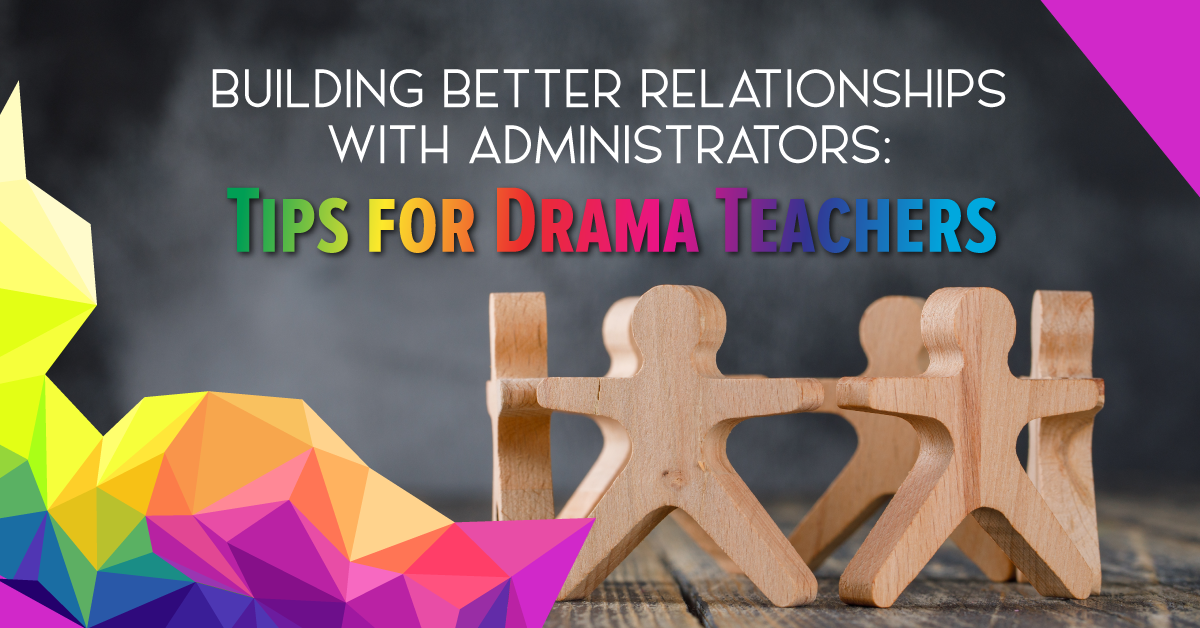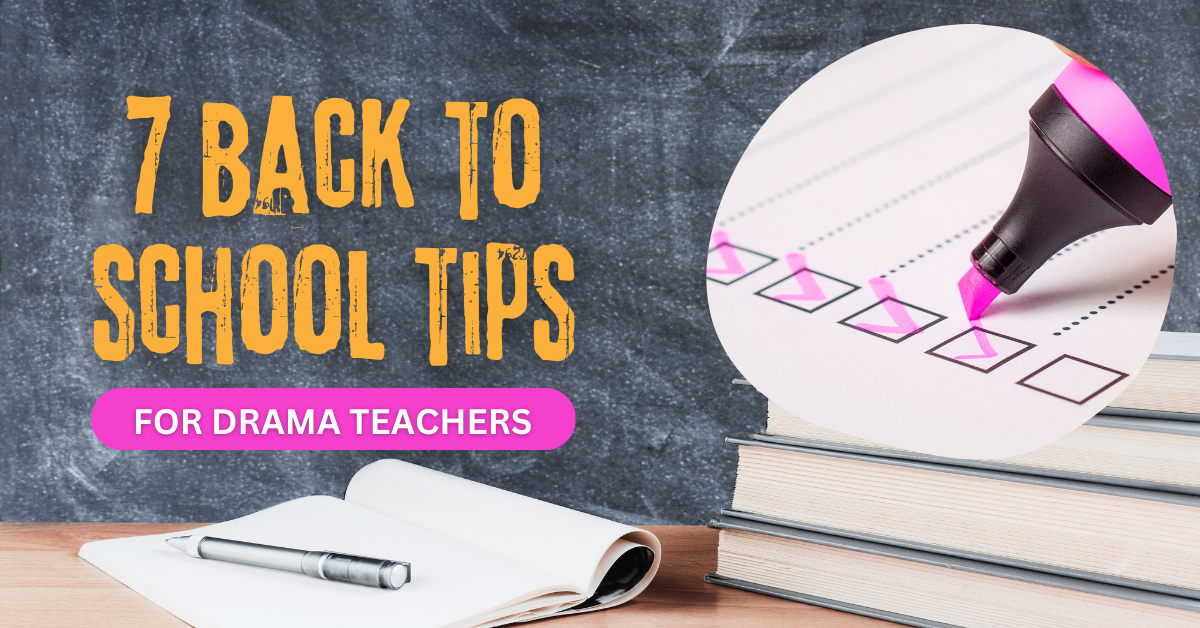5 Tips for Building Better Relationships with Administrators
Whether you’re a new teacher or have years of experience under your belt, there is one universal truth for theatre educators: For your program to thrive, you need to have a good relationship with your administrators. Building and maintaining a good relationship with your administration is easy if you know how to make an administrator happy. So, here are five tips that will help your administrator see you in a different light:
1. Do your job.
This sounds obvious, but there is no bigger red flag to an administrator than a teacher who does not perform their basic responsibilities. At a bare minimum, administrators expect you to:
- Show up to work every day.
- Be prepared.
- Carry out your designated duties (such as supervising the cafeteria or bus lot) and any other fundamental responsibility that is assigned by your school.
Teachers who are unable or unwilling to complete these basic, essential assignments quickly find themselves on an administrator’s bad side, and often find themselves out of a job. You can avoid being labeled a “problem” teacher simply by consistently and competently doing your job.
2. Handle your classroom.
Administrators expect teachers to handle basic classroom discipline. Although administrators understand their role as the ultimate enforcers of discipline in schools, they also prefer to be the option of last resort. When a student breaks rules or doesn't meet expectations, administrators expect teachers to attempt to resolve the situation “in house” before any administrators are included. They expect teachers to handle such low level infractions as cell phone violations, unprepared students, or mild insubordination, with consequences outlined in a schoolwide or classroom discipline plan. Once a teacher has exhausted their classroom discipline protocols, and the student still refuses to comply, then it is appropriate to kick the incident up the ladder to admin. With that scaffolding in mind, teachers who cannot handle basic discipline in their classroom without involving an administrator will quickly be viewed as “ineffective,” and will likely be subject to an intervention, or worse.
3. Make their job easier (and yours too).
From hosting community events to planning school assemblies, administrators have a lot on their plates when it comes to facility management. As a drama teacher, you have the unique ability to make your administrators’ job a little easier because of your connection to the auditorium. First and foremost, ask if you can take responsibility for maintaining and scheduling the auditorium. Tell your admin you will be happy to handle the calendar for the auditorium, and that you (and your advanced students) will be responsible for keeping the stage and backstage areas tidy. This approach is a win-win, as it puts more control of the auditorium space in your hands, and takes a chunk off of your administrators’ list of daily responsibilities. Plus, you and your students will do a much better job of maintaining the theatre space than people who only see it as auxiliary storage! Ultimately, administrators appreciate being able to pass off excess responsibilities to willing teachers.
4. Volunteer for appropriate projects.
Building on the idea of making your administrators’ job easier, look for opportunities to volunteer for projects that are unique to your position. For example, if there is a public meeting scheduled in the auditorium, offer to set up the lights and microphones. If you have the time, volunteer to operate the sound board or other technical components for the meeting. Again, this serves two purposes: You are demonstrating that you are a team player, AND you are keeping an eye on your tech equipment! As a drama teacher, you have special skills and training that other teachers don’t, and any time you can use those skills to help your admin, they will see you in a different light and appreciate you and your program even more.
5. Offer solutions, not problems.
This is a big one. Every drama teacher knows that from time to time, things will go wrong: Schedules will be fouled up, facilities will be overbooked, students will be overcommitted. When issues arise that require help from administration, be prepared to offer potential solutions to the problems you are reporting. Admin is confronted with dozens of problems every day, and it is exhausting to constantly have to come up with solutions to everyone else’s problems. So if you can walk through the door with not only a problem, but some potential SOLUTIONS, it will make those conversations go much easier. You may not always get the solution you want, but the fact that you put some thought into solving the problem will make a positive impression on your administration.
Additional Reading:
Calling All Theatre Teachers: How do I get admin to see that we need money?
How to Put on a Play That Your Administration Doesn’t Like



